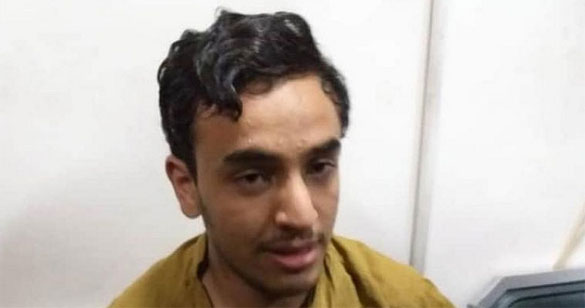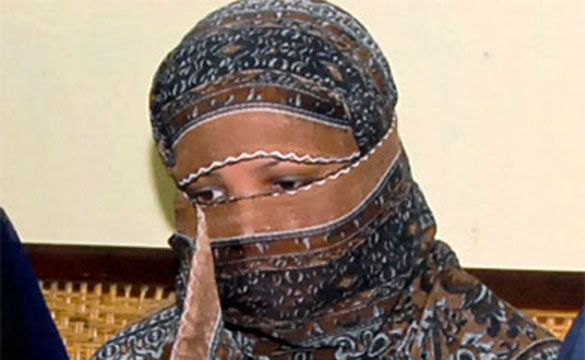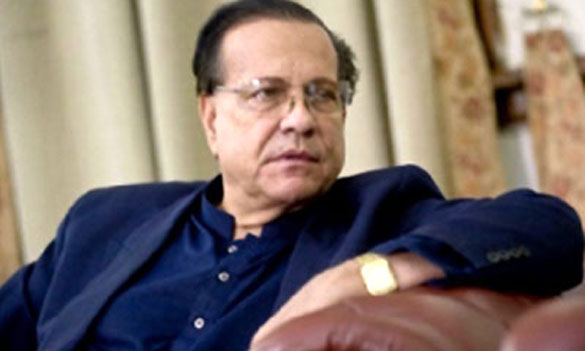A man accused of blasphemy and facing trial for the last two years, was shot dead right in front of the judge inside a court room in Peshawar. Tahir Shamim Ahmad thought that he was a Masih and that God spoke to him in his dreams. He also proclaimed himself to be the Mujaddid who had come to warn people that the end times was near.

Tahir Shamim Ahmad, had claimed he was Islam’s prophet
—-
The killer, Khalid, immediately surrendered and declared that had killed the man because he (Naseem) had dishonoured Prophet Muhammad. He added that Islam demanded that such a person should be killed and that he was just following the demands of his religion. Ahmad Naseem was an Ahmadi Muslim, a religious group which has been targeted by Pakistani state and people for many decades now. Blasphemy laws in Pakistan are punishable by death but so far, the courts have refrained from sending any of the accused to the gallows. Currently, there are at least 17 people who are convicted of blasphemy who are on death row.

Assailant Khalid Khan
—–
The law is so harsh that anyone accused of the ‘crime’ can ever hope for an impartial trial. Asia Bibi, a Christian woman accused of blasphemy, saw her death sentence overturned only after a prolonged international campaign. Those who spoke in her favour, governor Salman Taseer and minister Shahbaz Bhatti, were accused of being blasphemers themselves and were eventually killed for this reason by the lovers of the prophet. But if the law is adequately harsh, then why the need to kill such ‘blasphemers’ even before a guilty verdict has been pronounced? Videos circulating on the social media suggest that ordinary religious Pakistani Muslims have become wary of the courts. They think that the court takes too much time in delivering any verdict and are suspicious that the many human rights organizations working for the accused may put pressure on the courts.

Asia Bibi, a Christian woman
——

Governor Salman Taseer
—-

Pakistan Christian Minister Shahbaz Bhatti
—–
Many think that rather than wasting time in courts, it is better that the accused is killed by people instantly. Many Muslims tend to believe that this is enjoined on them by their religion. It is not a surprise therefore that since 1990, as many as 62 people have been killed by religious vigilantes in Pakistan, according to the think tank Centre for Research and Security Studies.
One can certainly accuse the Pakistan state for having such a tough and harsh blasphemy law and demand that the law either be diluted or altogether scrapped. However, the problem is much deeper. The Muslim society in Pakistan has now come to believe that killing an alleged blasphemer is tantamount to an Islamic virtue. An entire social ecosystem has developed within Pakistan where men who kill a ‘blasphemer’ are feted as ghazi. The killer of Salman Taseer today has the status of a Pir, who can give blessings and cure diseases. His grave is venerated by thousands. Such reverence for a murderer is only possible if people genuinely believe in the necessity and truthfulness of killing a blasphemer. In other words, such killings are considered legitimate and even expected of Muslims. It is this social support which emboldens the political class to defend blasphemy laws. Till the time we do not question this sentiment, we are not going to get rid of this problem.
Does the Quran mandate any such punishment for blasphemy? Certainly not. While it does not tolerate criticism of Islam, God or the Prophets, Quran categorically leaves the job of punishing such individuals in the hands of Allah. In other words, this is something between the concerned person and God which will be judged in the hereafter and not in this world. It seems that the mullahs and muftis have arrogated to themselves the power which should rightfully belong to the Almighty. Interestingly, Muslims who argue that their religion should not be criticised often indulge in criticising other religious traditions, completely forgetting that the Quran forbids them to do so. Thus whereas they freely indulge in lampooning other religions, any criticism of Islam becomes an issue of blasphemy for Muslims. Laws which inhibit free expression of thought is therefore not about respecting all belief systems but only a tool to harass and intimidate the minority.
A democratic country should have no blasphemy related laws as it directly impacts on freedom of expression of its citizens. What characterises blasphemy is a slippery domain and therefore those who are in the business of discussing ideas have no other option but to censor themselves. Such a state of affairs is hardly conducive to the intellectual growth of any country. Rather than promoting religious tolerance, such laws in fact weaken reform minded moderate Muslims and silence minorities, encouraging violence against them. It is not surprising that the majority of those who have been accused of blasphemy in Pakistan are either Shias or Ahmadis, both minorities in their own ways.
Pakistan is trying hard to shed its image as a country which is hostile to its minority population. The renovation and maintenance of Hindu temples and Sikh gurudwaras are all part of this effort to project a tolerant and multicultural image to the outside world. But till the time it has such obnoxious laws on its statute books, the world at large will not believe that Pakistan is making a sincere effort in that direction.
Arshad Alam is a NewAgeIslam.com columnist.
This article was first published in New Age Islam and may be read here
